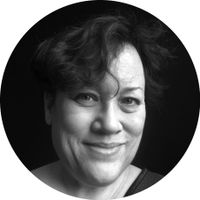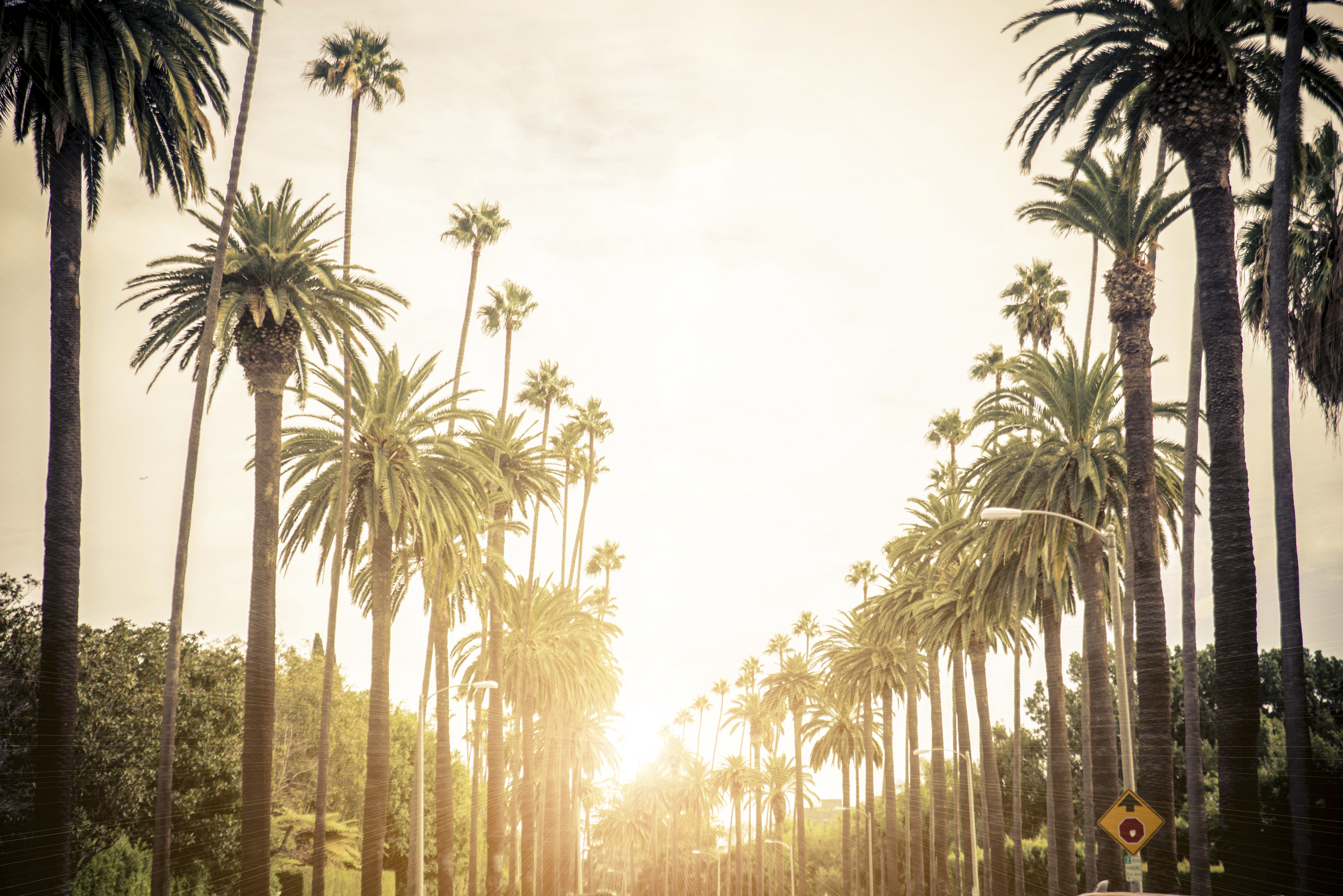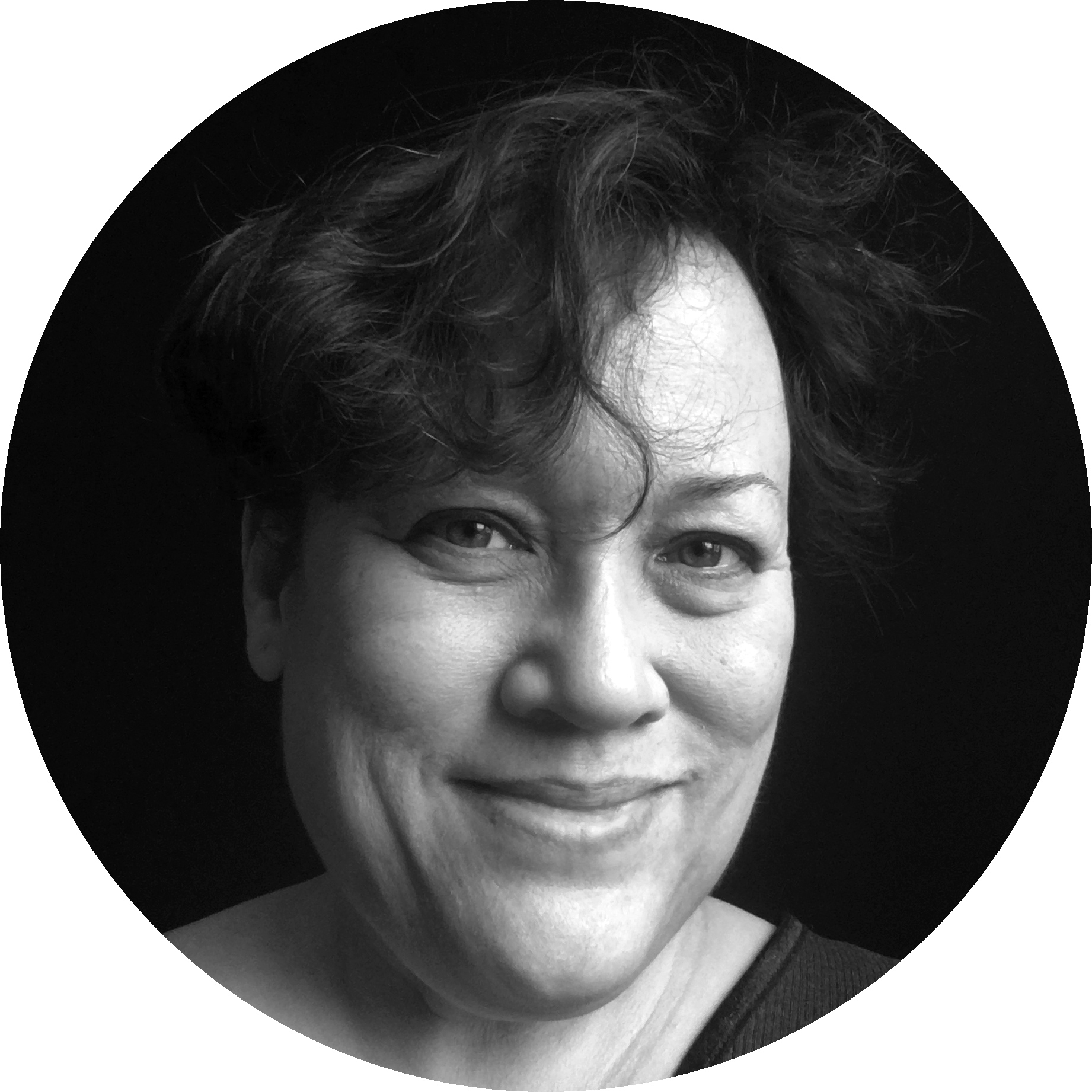Why I fled Los Angeles for small-town New England
My husband and I had spent a lot of time in La La Land, but we just had to get out


A free daily email with the biggest news stories of the day – and the best features from TheWeek.com
You are now subscribed
Your newsletter sign-up was successful
"Dude seriously. You're moving where? Do you know anyone there? It snows there! It's HOW big?!? Have you even been there before? Is there a Starbucks? Dude it SNOWS. IT SNOWS. Why would anyone want to leave Cali, man? That's messed up."
I grabbed the futomaki with my chopsticks and downed it in one bite, chasing it with a sliver of pickled ginger then with scalding hot green tea as I watched my friend tuck into her chicken teriyaki bento lunch special and chatter on about how crazy I was. She was a relatively new transplant to L.A. from the Midwest and apparently still too starstruck and sunstruck — as newbies in the City of Angels often tend to be — to understand my reasoning. At the time, I thought her reaction was an anomaly. Surely our other friends and family would get it. Like us, many of them struggled with work, traffic, the general cost of living, and the endless rat race of Los Angeles. But I was wrong. This was to be the first of many discussions with our family and friends to explain the seemingly inexplicable decision we'd made to move from L.A. to Newport, Vermont: population 4,620.
The reason? Because we could.
The Week
Escape your echo chamber. Get the facts behind the news, plus analysis from multiple perspectives.

Sign up for The Week's Free Newsletters
From our morning news briefing to a weekly Good News Newsletter, get the best of The Week delivered directly to your inbox.
From our morning news briefing to a weekly Good News Newsletter, get the best of The Week delivered directly to your inbox.
My husband, Michael, was a native Californian who lived in big cities all his life. I was born and raised in Tokyo and Los Angeles. Living in concrete jungles was all we ever knew. L.A. was a fantastic place to grow up during the 1970s and '80s, and to work in during the '90s. But then in the new millennium, something changed. The city started suffering from the onslaught of social media. Suddenly, everybody wanted to be Kim Kardashian. Everybody thought they were stars just because they garnered a few hits on their YouTube channels as they spun vinyl at underground rave clubs or published daily pouty selfies on Instagram. We were constantly either within earshot of strangers staging selfies or accosted by strangers wanting us to take their picture.
"OMG! What an awesome handbag! Let's take a selfie! Where'd you get your boots? 1-2-3 smile (but only if it's a proper duckface)! OMG do you know anyone at CAA? Can I give you my card? OMG, you're a writer? Are you a screenwriter? Here's my headshot. I can ride a horse and speak with a Southern accent."
These self-centered exchanges with strangers were tempered only by more personal exchanges with friends and co-workers, most of which centered around fashion, food, energy levels, and, of course, commuting.
"Dude who are you wearing? Did you get that at Fred Segal's or Nordstrom's Rack? Let's just tell everyone it was from Fred's. No one needs to know, am I right? What are you eating? Is that the gluten free quinoa salad with organic baby arugula from Erewhon? Dude I'm so tired. How are you? Tired? Hmm. Not as tired as me, I'll bet. I'm EXHAUSTED. Seriously. How long did it take you to get to work? Did you take the 101 or the 405? Shoulda taken Sepulveda and cut over. OMG. Later, dude."
A free daily email with the biggest news stories of the day – and the best features from TheWeek.com
The final indignity — in addition to the drought, excessive desert heat, and sky-high cost of living — was the fear that you would eventually morph into the Angeleno who responded to almost any question with a halting, choked-up, vocal-fried emotionless response of "OMG that's hilarious. I can't even like, OMG like, that's like, so, like, I don't know. I. Can't. Even."
Hey Deena, wanna get some lunch at Farmers' Market? "OMG that's hilarious. I can't even like, OMG like, that's like, so, like, I don't know. I. Can't. Even."
Hey Bill, can you drive me to the hospital? I just broke my arm. "OMG that's hilarious. I can't even like, OMG like, that's like, so, like, I don't know. I. Can't. Even."
Hey Steve, I just got laid-off. Can I crash on your couch? "OMG that's hilarious. I can't even like, OMG like, that's like, so, like, I don't know. I. Can't. Even."
People move to L.A. for one of two reasons: opportunity, or the weather. But once opportunity passes you by, you're stuck waiting tables at a greasy spoon. Or when you finally realize that L.A. is a desert that reaches the 100s in the summer and the 90s in the cool part of the summer (which in total lasts for six months of the year), what you're left with is an impossibly expensive place to live that's populated with a LOT of mostly vacuous people who are famous for no reason in an environment where, if you're not 20 years old and a size 00 (yes, double zero is a dress size in Los Angeles) and considered part of the gorgeous people contingent, you'll just fade into the woodwork, hoping to eke out a living in a desert metropolis where everyone is secretly living paycheck to paycheck. They're mortgaged to the hilt and are less than one payday away from losing it all and moving from a rustic Spanish bungalow in the Hollywood Hills to a friend's couch in his grandmother's garage in Pacoima. But hey, it's all about keeping up appearances, and as long as I've got my Lexus and Samsung Galaxy and my roots don't show, ain't nobody got to know any better.
As we relocated, what we didn't count on was the same barrage of questions from locals in New England, in our new hometown.
It was four degrees below zero on a snowy day in January when we first arrived in town on a scouting trip months before we even moved. "You're from Los Angeles? Why'd you choose Newport?" our realtor — and every person we met — asked. A native son of generations of Newportians, he was truly flummoxed by our choice, but delighted that we picked his hometown. He was the Godfather of this town. He couldn't drive down the street without other drivers waving or yelling "Hi!" and if he liked you, you were "in." Every person we met in this little New England town was genuinely welcoming but also equally curious as to why big-city folk would want to move here. Waitresses would sit at our tables, chins in hand, waiting as a child would wait for a favorite bedtime fairytale, just to hear our story. And when people heard our answer, the overwhelming reaction was, "My oh my. Los Angeles? What a change. But good for you! Welcome!"
Honestly, the reason we moved actually goes a little deeper than just saying "because we could." It was about our quality of life. Our house is paid for and we have emergency money in the bank. I'm making nearly the same salary as a home-based freelancer as I was in L.A. at a going-nowhere desk job that cost me two hours in daily commuting time. We don't even drive 10 miles a day now, but when we do, we're surrounded by the Green Mountains, cattle farms, deer, moose, and elk. Wild turkeys amble drunkenly across the road. Farmstands and random snack shacks pepper the landscape and stopping for an impromptu picnic in the springtime will get you some home-cooked food to eat amongst the fragrant lilac trees and fat, lumbering bumblebees.
We didn't want to become California retirees who were forced by economics, arthritis, and age to move to adults-only communities in Arizona and New Mexico where the residents did little more than watch Judge Judy after a round of skin sizzling golf in the blazing hot sun. We actively chose to get out of the rat race long before we retired. We've stopped to smell the roses, as they say. We both love and feel appreciated in our jobs.
But don't get me wrong. All this New England love isn't to say that the move didn't require a little... adjusting. We spent the first three weeks at a lakeside condo as we waited for the house to close. On the second day I awoke to deep, unfamiliar honking over the lake, followed by blasts that sounded like gunshots.
"Duck hunting season's on, honey," Mike explained as he padded into the living room with a cup of coffee.
BLAM.
BLAM BLAM.
QUACK. QUACK. FLAPFLAPFLAPFLAP.
BLAM.
We really weren't in L.A. anymore.
What the hell had we done?
Winter came late and light, according to the locals. Our realtor joked that we brought California weather with us. And one night in February there were more blasts. I flinched. It was a natural response from anyone used to living in a big city. And just as I looked out of my office window onto Lake Memphremagog, I noticed fireworks. No gunshots, just fireworks. The Winter Festival. Kids ran around with sparklers in the cold, crisp evening air as their parents feasted on barbecue and talked about the next sugaring harvest. Maple sugar, that is.
Welcome to small town, U.S.A.
And here we are, nine months on. We love every minute of our lives here in what's known as The Northeast Kingdom. And no, we're not living ala Northern Exposure where Joel Fleischman yearns for each moment in his Alaskan hell to pass quickly so he can return to New York as soon as possible. I'm not wandering around the farm dressed like Lisa Douglas in chiffon and ermine while I muck out the horse stalls each morning. We have a spacious home with pine trees all around and — wait for it — a white picket fence. You might scoff and call it too Rockwellian, but you go right ahead. It works for us.
The very same naysayers from California are now lining up to visit. They beg for pictures of our lake, our verdant mountains, our wildlife. We stop at the single hanging stoplight on Main Street close to the grainery and watch old people in red flannel shirts and Bogs boots shuffle across the street. We buy freshly laid eggs from the man who owns a chicken coop a few houses down. We dodge the old lady near downtown that sweeps dirt out of the cracks of the pavement every day, her lime green tennis ball-footed walker always at her side. We wave at the dads and their tots who fish off the main bridge by the lake and visit the local farmer's market to buy fresh maple syrup and jam.
But, of course, it's not perfect. No place ever is. There's a rampant heroin problem in these parts, but it's spoken of freely by survivors and their families — it's not hidden as it is in L.A. It was a little scary at first, but then you see recovering addicts working at blue-collar jobs. They're proud of their journeys and amazed to be alive. The joy in their faces makes us remember what it's like to be humble. And thankful. And because they keep trying to improve their lives in spite of seemingly insurmountable circumstances, it inspires us to remain humble and thankful. It doesn't matter "who" we're wearing, what accessories we're carrying, or what kind of cars we drive. What matters to the locals — and to us — is being good, decent people.
Moving to this small haven in New England has reminded us who we really are: somewhat shy, introverted, caring people who want to help others and be good citizens. We had to suppress that to survive in the big city, or risk being thought of as weak.
Nobody asks why we moved anymore. But they do ask if we're happy with our decision. Yes. YES. YES! Do we miss anything about living in a big city? Not really. We're within a few hours' drive of Montreal, Boston, and New York City. There's a new Dunkin' Donuts nearby and a Walmart opening soon. Mike and I have each other, our dog, and our house. And we have our 80-year-old neighbor, Wayne, who can't wait for the springtime so he can hop on his riding mower to cut his grassy acreage every other day; and for winter when he can zoom around on his distress-orange snowmobile atop the fresh fallen snow.
Dude, what else do you need? It's a wonderful life. Don't wait to start living yours.
Shelley Moench-Kelly is a freelance writer and editor from Vermont via Los Angeles and Tokyo. Her freelance clients include Google, L'Oreal Paris, and MedEsthetics magazine.
-
 The ‘ravenous’ demand for Cornish minerals
The ‘ravenous’ demand for Cornish mineralsUnder the Radar Growing need for critical minerals to power tech has intensified ‘appetite’ for lithium, which could be a ‘huge boon’ for local economy
-
 Why are election experts taking Trump’s midterm threats seriously?
Why are election experts taking Trump’s midterm threats seriously?IN THE SPOTLIGHT As the president muses about polling place deployments and a centralized electoral system aimed at one-party control, lawmakers are taking this administration at its word
-
 ‘Restaurateurs have become millionaires’
‘Restaurateurs have become millionaires’Instant Opinion Opinion, comment and editorials of the day
